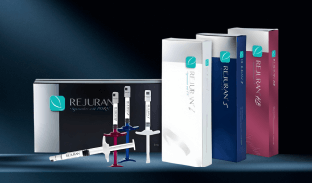Some people experience bruxism, or the tendency to grind their teeth, which can contribute to jaw tension and discomfort. Bruxism may be linked to stress, habitual jaw clenching, or other factors. Persistent tension over time can sometimes be associated with headaches, jaw soreness, or changes in jaw function.
Non-surgical approaches, such as masseter muscle consultations, may provide guidance on strategies that support muscle relaxation and reduce clenching-related discomfort. This article explains how these consultations work, potential benefits, and considerations.
Table of Contents
1. What Are the Masseter Muscles?
The masseter muscles are located on both sides of the jaw and assist with chewing, speaking, and other jaw movements. Overuse of these muscles—through teeth grinding or habitual clenching—can sometimes result in:
- Jaw tightness or soreness
- Headaches originating from the jaw area
- Difficulty opening the mouth fully
- Wear of tooth enamel
- Changes in jaw shape
Common first-line measures include using mouthguards or lifestyle adjustments suggested by a healthcare provider. When these measures do not provide sufficient relief, masseter muscle consultations may be considered to help support muscle relaxation.
2. How Masseter Muscle Consultations Work
Masseter consultations provide guidance on strategies to reduce excessive muscle activity in the jaw. These consultations may include discussion of approaches that support:
Supporting Muscle Relaxation
Some interventions aim to help the jaw muscles relax, which may reduce tension and limit clenching or grinding.
Reducing Jaw Discomfort
Consultations can provide guidance on ways to address soreness or headaches related to jaw tension.
Facial Contour Considerations
In cases where masseter muscles are overdeveloped, reducing muscle tension may gradually influence jaw appearance. The primary focus, however, is on muscle relaxation and comfort rather than aesthetics.
3. Potential Benefits of Masseter Consultations
Masseter consultations may provide guidance that:
- Is Non-Surgical: Strategies do not involve incisions or surgical recovery.
- Supports Jaw Comfort: Some people may notice reduced tension or discomfort over time.
- May Offer Longer-Term Support: Ongoing consultations can provide advice for managing muscle activity.
- Supports Oral Health: Guidance on reducing teeth grinding may help protect enamel and support overall oral function.
4. How Consultations May Help Relieve Jaw Tension
Masseter consultations aim to support jaw relaxation, which may result in:
- Support Over Time: Some people may notice a reduction in jaw tension or discomfort over days or weeks.
- Reduced Bruxism Symptoms: Guidance may help decrease the frequency or intensity of teeth grinding.
- Prevention of Future Issues: Strategies can contribute to reducing the risk of complications such as dental wear, gum concerns, or jaw joint problems.
5. Possible Side Effects
While consultations themselves are safe, any suggested interventions may have temporary effects, including:
- Mild tenderness or swelling at the jaw muscles
- Temporary muscle fatigue or changes in chewing comfort
- Minor asymmetry if one side of the jaw responds differently
- Headaches or mild flu-like sensations in some cases
Most effects typically resolve within a few days to a week. Following the guidance provided during consultations can help minimise risks.
Masseter muscle consultations are a non-surgical approach that some people use to support jaw relaxation, manage discomfort from clenching or teeth grinding, and reduce associated tension. Outcomes vary by individual, and any approaches should be discussed with a healthcare provider to determine what may be suitable.


